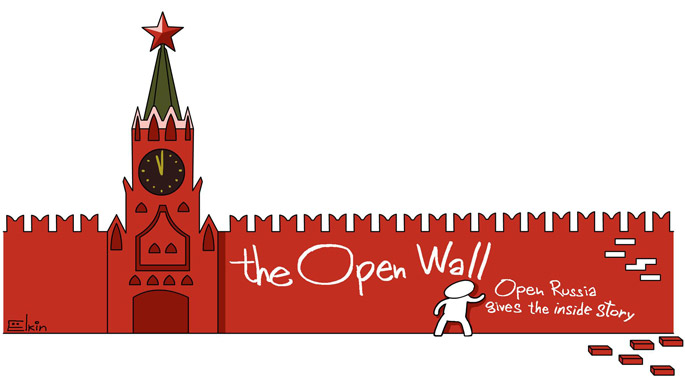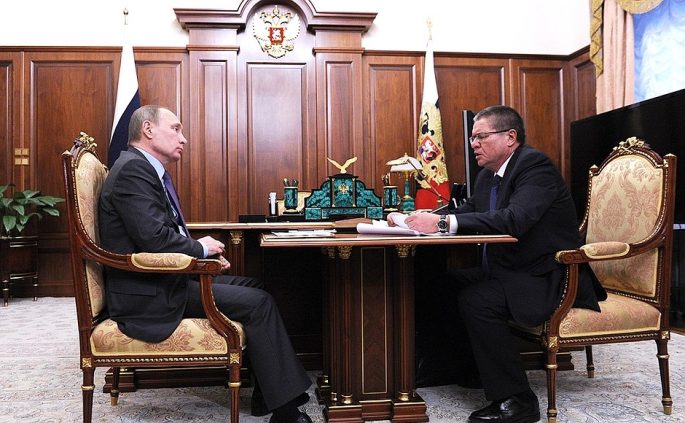The pale of corruption

The pale of corruption
Last week in Moscow the Minister for Economic Development Aleksey Ulyukayev was arrested for receiving a bribe of $2 million.

Aleksey Ulyukayev is/was a classic, textbook liberal in Putin’s government: well-educated, Westernised, modern, he embodied the acceptable side of the Russian elite, which we are accustomed to contrast with the ‘men in uniforms’ who have emerged from the murky depths. Perhaps we should now reconsider our ideas.
It is too early to discuss the factual or legal aspects of the arrest as much remains unknown, and, in theory at least, only a court can decide whether a person is guilty or not. But we can give some consideration to the issues and problems, which this historic event has highlighted – the last time a government minister was arrested was in 1953.
We do not as yet know whether Ulyukayev was framed or whether this was a legitimate operational procedure, but the fact that he had received 2 million bucks in cash from representatives of the oil company Rosneft seems not to be in dispute. Moreover, Ulyukayev had previously been suspected of being involved in corruption. Firms set up in his name were discovered during the investigation of the Panama Papers, which perhaps helped to finance his watch costing $80,000 – more than his annual salary.
Corruption is one of the most important tools in Putin’s system of government. It is simultaneously both the carrot and the stick for the people who work for him. Putin allows loyal officials to become fabulously rich, while at the same time keeping in his desk kompromat [incriminating information] on each and every one of them. But for a long time, while recognising the structural significance of corruption for the Putin system of government, we saw the so-called liberals in the Russian government as being outside the pale of corruption.
The Ulyukayev affair shows us that we were either wrong, or simply indulging in wishful thinking. Corruption would seem to be the absolute lynchpin of the Russian government. This, in its turn, is evidence that there is no such thing as a liberal camp in Putin’s government or his administration. There are merely a few groupings of officials with slightly different sources of corrupt revenues and ways of getting their hands on it.
The arrest of Ulyukayev is, without doubt, an important victory for Igor Sechin, Putin’s closest crony and head of Russia’s largest oil company Rosneft. Sechin has shown everyone that he controls both the immensely powerful financial resources of the oil giant and all the might of the repressive machinery of the FSB. The arrest was made by the FSB at the oil company’s headquarters, and was led by Oleg Feoktistov, the head of the Rosneft security service, and until recently a security services general. The ex-FSB Igor Sechin is known in Russian business and political circles for his inability to compromise and his tendency to resolve any dispute by force. But now perhaps Sechin has gone too far. Even in Putin’s Russia a government minister is a very powerful figure and seemingly untouchable. Until now, corrupt ministers have got away with, at worst, an honourable retirement with retention of all privileges and accumulated corrupt wealth.
Sechin has disturbed the status quo. Since the day Ulyukayev was arrested, all the bureaucrats in Putin’s government are fated to live in permanent terror that they too could be prosecuted.
Moreover, Sechin, victorious in this struggle within the government establishment, has become perceptibly more important than all the other Putin cronies, so there is now no one more hated in Russian politics than the head of Rosneft.
There is currently only one person between Igor Sechin and all the other dramatis personae of Russian politics longing to destroy him – Vladimir Putin. But at some point he will be leaving the political arena, and what then for Sechin? Russian history is always helpful in such matters – we remember Lavrentii Beria, Stalin’s loyal servant and mastermind of his most delicate missions, who survived his master just long enough to be arrested and shot.
Sechin cannot fail to understand what his prospects are if Putin goes. He has only two options: to keep Putin in power for as long as possible and then become his successor, or to seize power before that. The second option is really not as mad as it might appear. We are, after all, dealing with a man who has practically limitless financial resources, huge support among the ‘men in uniform’ and a total absence of principles or any constraints dictated by feelings of humanity.
Readers who have had the patience to read this far, through the undergrowth of Russian politics, will be asking: what about Putin? We are used to seeing the Russian president as a ruthless macho man who will not permit any of his subordinates, even those closest to him, to settle their problems in a way, which so dramatically affects Russian domestic policy. Why then does Putin allow the head of Rosneft such freedom? It would seem that Igor Sechin has some kind of secret, but very effective, hold on his boss. We can only guess at some kind of compromising information or knowledge of weak spots.
The arrest of the Economic Development Minister could, therefore, prove to be an interesting new storyline in Russian life.



